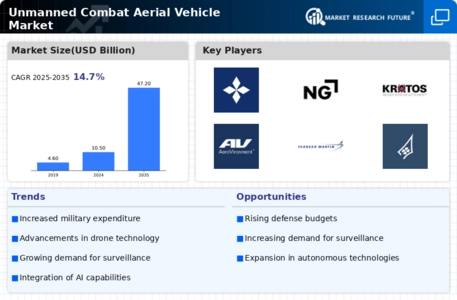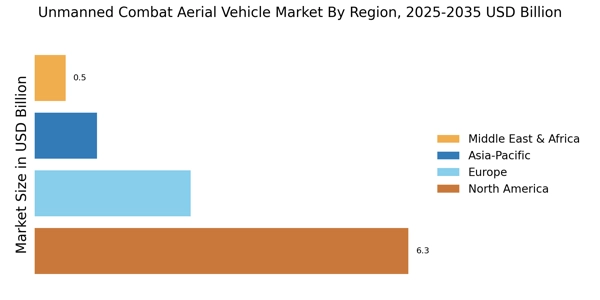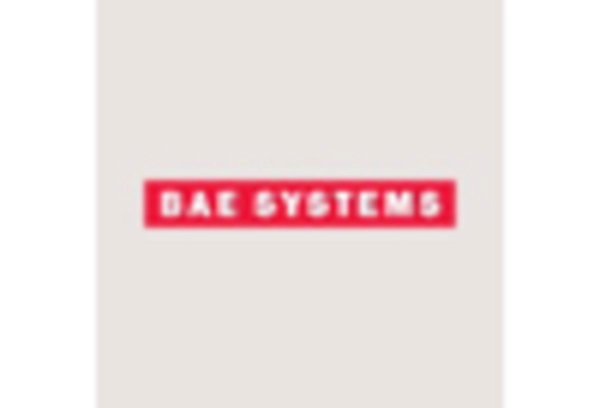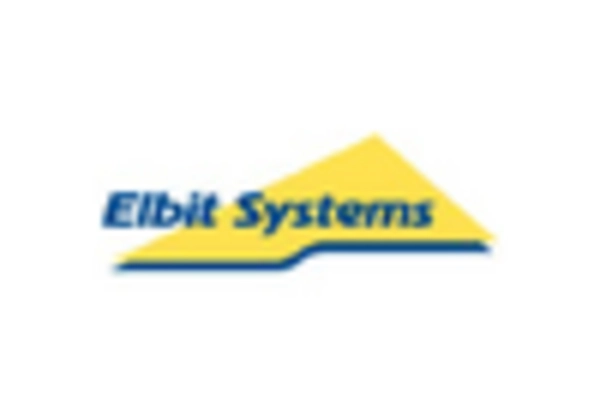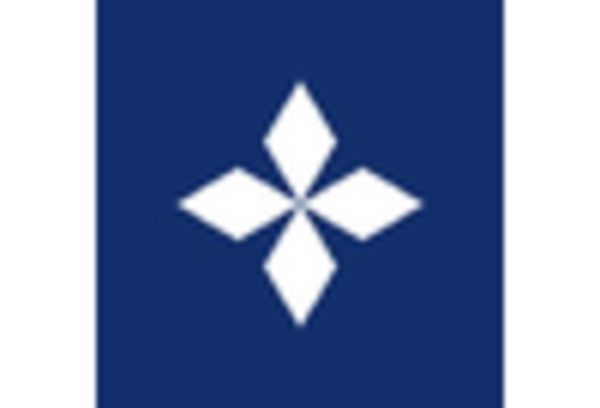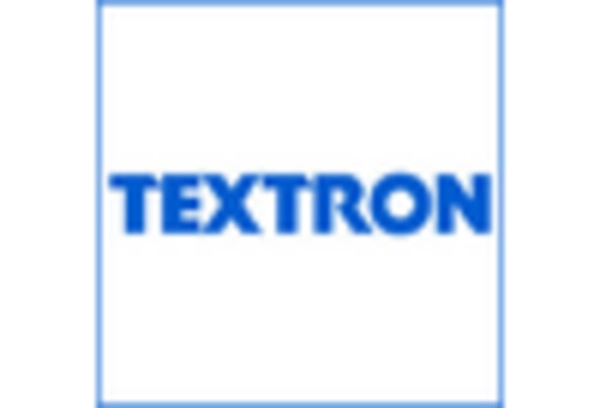Evolving Military Strategies
The evolution of military strategies is significantly influencing the Unmanned Combat Aerial Vehicle Market. As warfare becomes increasingly asymmetric and technology-driven, military planners are adapting their strategies to incorporate unmanned systems. These vehicles offer unique advantages, such as the ability to conduct operations in contested environments without risking personnel. The shift towards hybrid warfare, which combines conventional and unconventional tactics, further underscores the need for versatile unmanned systems. Reports indicate that nations are investing heavily in developing and deploying these technologies to maintain strategic advantages. This strategic pivot is likely to sustain demand for unmanned combat aerial vehicles, as military forces seek to enhance their operational capabilities in an ever-changing battlefield landscape.
Growing International Collaborations
International collaborations are playing a crucial role in shaping the Unmanned Combat Aerial Vehicle Market. Countries are increasingly engaging in joint ventures and partnerships to develop advanced unmanned systems, sharing expertise and resources to accelerate innovation. These collaborations often lead to the establishment of defense agreements that facilitate technology transfer and co-production initiatives. As nations recognize the benefits of pooling resources, the market is likely to see a rise in collaborative projects aimed at enhancing the capabilities of unmanned combat aerial vehicles. This trend not only fosters technological advancements but also strengthens diplomatic ties between nations. The growing emphasis on international cooperation is expected to be a significant driver in the Unmanned Combat Aerial Vehicle Market.
Increased Focus on Cost-Effectiveness
Cost-effectiveness is becoming a pivotal consideration in the Unmanned Combat Aerial Vehicle Market. As military budgets face constraints, defense forces are seeking solutions that offer high operational capabilities at lower costs. Unmanned combat aerial vehicles present a viable alternative to traditional manned aircraft, as they typically require less maintenance and operational expenditure. The market is projected to witness a shift towards more affordable unmanned systems, with manufacturers innovating to reduce production costs while maintaining performance standards. This trend is likely to attract a broader range of customers, including smaller nations and non-state actors, who may not have previously considered investing in such technologies. Consequently, the emphasis on cost-effectiveness is expected to drive growth in the Unmanned Combat Aerial Vehicle Market.
Integration of Artificial Intelligence
The integration of artificial intelligence (AI) into unmanned combat aerial vehicles is transforming the Unmanned Combat Aerial Vehicle Market. AI technologies enable these systems to perform complex tasks autonomously, enhancing their operational efficiency and effectiveness. For instance, AI can facilitate target recognition, mission planning, and data analysis, thereby reducing the cognitive load on human operators. This technological evolution is expected to propel the market forward, with estimates suggesting a compound annual growth rate of over 15% in the coming years. The ability to process vast amounts of data in real-time allows for quicker decision-making in combat scenarios, which is increasingly vital in contemporary military operations. As defense budgets expand, the demand for AI-enhanced unmanned systems is likely to grow, further solidifying their role in the Unmanned Combat Aerial Vehicle Market.
Rising Demand for Surveillance Capabilities
The Unmanned Combat Aerial Vehicle Market is experiencing a notable surge in demand for advanced surveillance capabilities. Military forces are increasingly recognizing the strategic advantages offered by unmanned systems, which provide real-time intelligence and reconnaissance. This trend is underscored by the projected growth of the market, which is anticipated to reach USD 10 billion by 2026. The ability to conduct persistent surveillance without risking human lives is a compelling factor driving investments in unmanned combat aerial vehicles. Furthermore, the integration of sophisticated sensors and imaging technologies enhances the operational effectiveness of these systems, making them indispensable in modern warfare. As nations seek to bolster their defense capabilities, the emphasis on surveillance and reconnaissance is likely to remain a key driver in the Unmanned Combat Aerial Vehicle Market.


